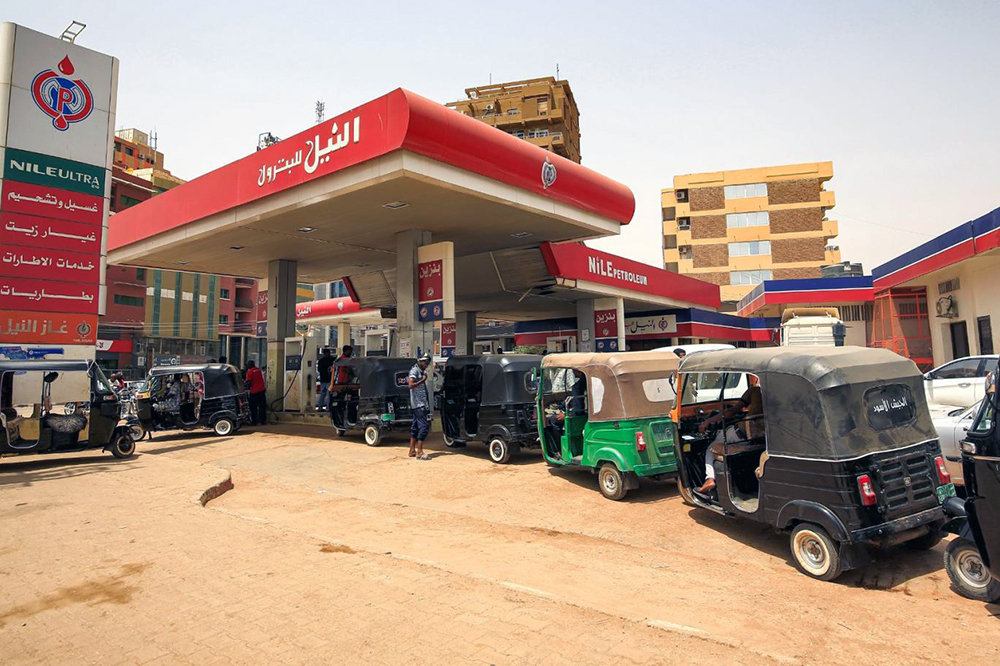
Sudan: Safe States Affected by the War
By Walid Al-Noor
In its sixth month, the war in Sudan has taken on a different form, affecting not only the armed clashes taking place in the capital, Khartoum, and the states of West and South Darfur, but also extending its impact to states that previously enjoyed a high level of security.
Despite numerous appeals by the army commander, Abdel Fattah al-Burhan, during his foreign tours to stop the war, citizens in the Gezira state, in central Sudan, face a shortage of fuel, especially gasoline.
This state, which is close to the capital, used to receive its fuel supplies from Khartoum, using it for transportation and agricultural activities. However, with the war, supply lines have been disrupted, and the state now depends on other cities, especially Port Sudan.
The fuel shortage has caused long lines of cars in front of gas stations in the cities of Wad Medani (200 kilometers south of Khartoum) and other small towns. Some people wait for more than ten days just to obtain 5 gallons of fuel.
Gezira has received the largest number of displaced people fleeing the horrors of the Khartoum war, which has increased demand for transportation significantly. The fuel shortage has had a ripple effect on the cost of goods and services, burdening citizens already suffering from rising housing costs, with the rent for a small studio apartment being approximately 750,000 Sudanese pounds per month (about 150 dollars). Thousands are cramped in miserable shelter homes, with no signs of the relief that government officials speak of.
During this month, the humanitarian aid commissioner at the Ministry of Social Development was dismissed, and online news sites and social media reported the sale of relief materials, along with the disappearance of two trucks from the dry port of Kosti in the White Nile State.
With the ongoing rainfall, malaria has spread in Wad Medani, increasing the number of patients seeking treatment at both government and private hospitals. This comes at a time when medications are in short supply, and the healthcare system is on the brink of collapse.
In the Kassala State, in eastern Sudan, adjacent to Ethiopia, the war manifests itself in the local governments inability to control dengue fever, which has emerged to coincide with the outbreak of cholera every year. The government does not appear capable of draining the heavy rainfall that occurs during the autumn season.
Importing agricultural laborers from various parts of Sudan and even across the eastern borders has become a challenging task for the region. Most of the states residents live in villages that lack basic healthcare, and some villages become isolated from one another during the autumn months.

